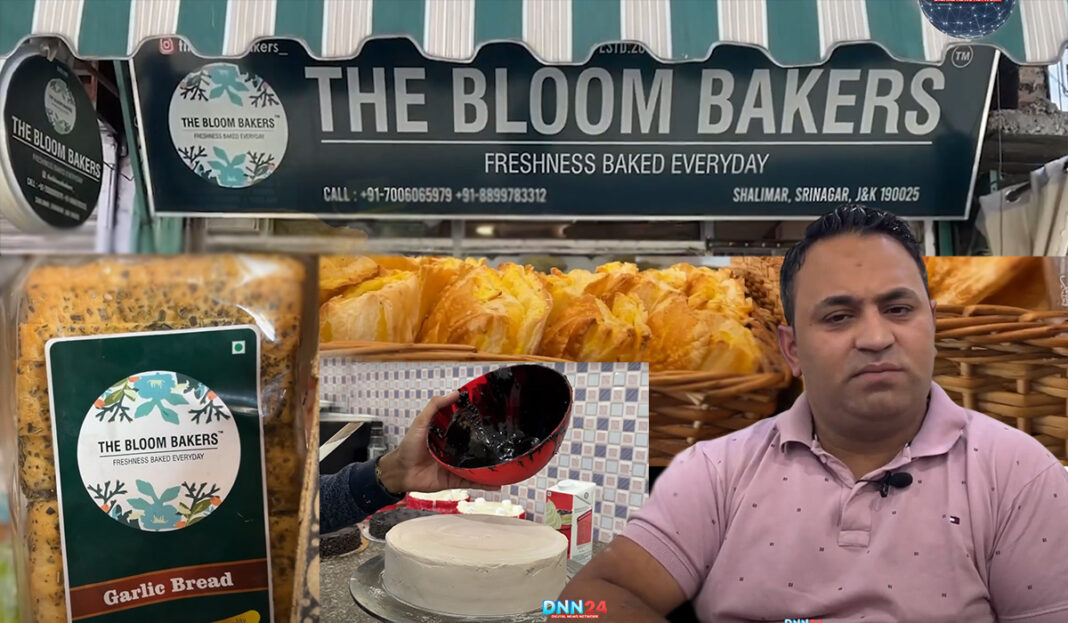Sajad Ahmad Lone and his daughter Muqadus won gold medals at the 2025 Pencak Silat World Championship in Abu Dhabi. Kashmiri duo Sajad Ahmad Lone and 15-year-old daughter Muqadus have both achieved martial arts glory for India while reshaping public perceptions about feminine participation in combat sports. Their journey spanned thirteen years during which they split their time between strict training sessions and academic responsibilities and competitive success inside and outside of India. High school athletes who want to build success in overlooked sports will learn from their ongoing example.
Both Sajad and Muqadus have worked very hard to reach where they are today. Training occurs outside in Anantnag because the athletes lack access to a necessary indoor stadium facility. Against all obstacles these athletes demonstrated exceptional dedication to earn world-level gold medals. Their story demonstrates how dedicated pursuit under strong leadership results in achievements across all boundaries.
Abu Dhabi Triumph: Historic Dual Golds
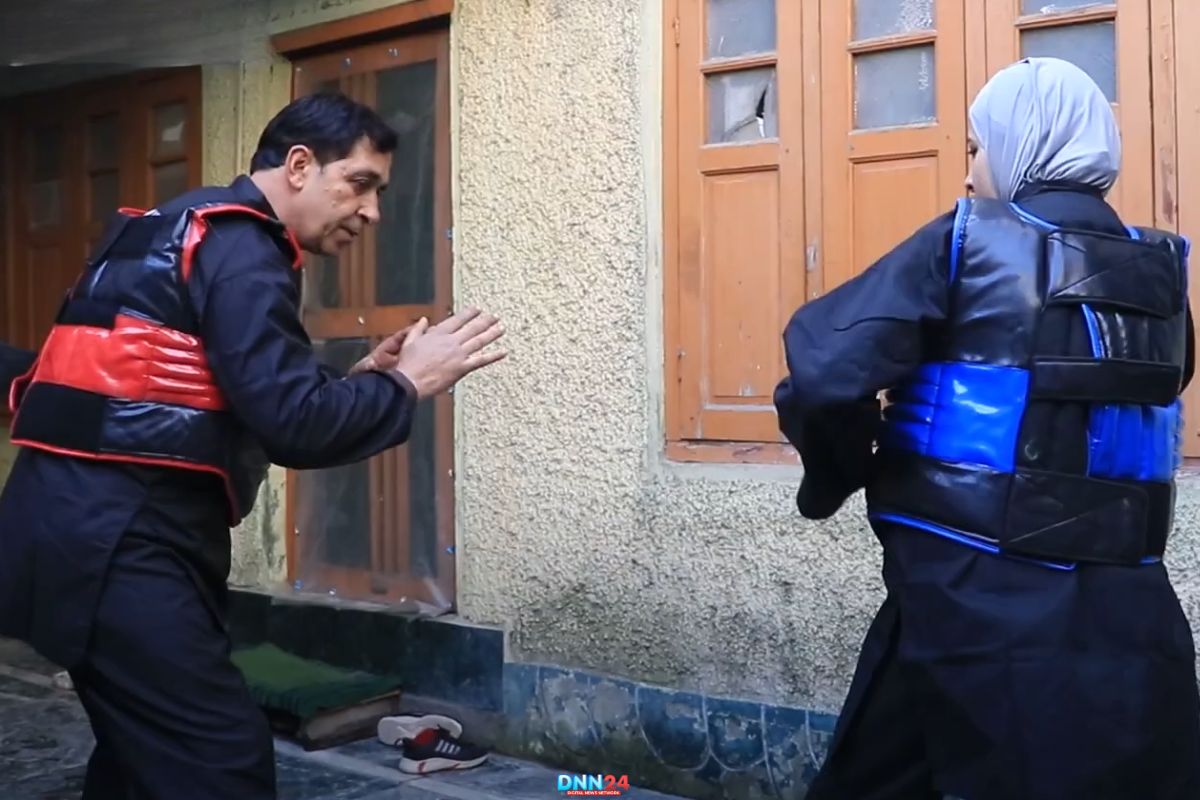
The 20th World Pencak Silat Championship held in Abu Dhabi in April 2025 was a very big event. Indian father-daughter duo emerged as the standout athletes at the competition which brought 57 nations to compete. Both Sajad and Muqadus received gold medals at the championship with Sajad winning in his age division for experienced participants and Muqadus winning in the artistic category of junior competitors. Sports history recorded this double win as an extraordinary and uncommon achievement.
Their performance was extraordinary as they achieved very high assessment points. During sparring they scored a total of 9.85 points which indicated their exceptional fighting ability. Their performance in seni (artistic form) achieved a score of 9.7 out of 10 as they displayed perfect artistic techniques. These high scores show how good they are in both fighting and artistic parts of Pencak Silat.
The essence of their tale becomes captivating because they share their training practice. At 6 AM every morning the athletes start their outdoor training session since Anantnag lacks an indoor facility.
Pencak Silat Odyssey: 13 Years of Evolution
Sajad and Muqadus have been on this journey for many years. Muqadus commenced her martial arts training at the early age of three during the year when her father opened Anantnag Pencak Academy. From that point forward began their extensive journey in Pencak Silat. During 2018 Muqadus secured a National Gold medal in Under-12 while Sajad became the Technical Director of JK Pencak Association.
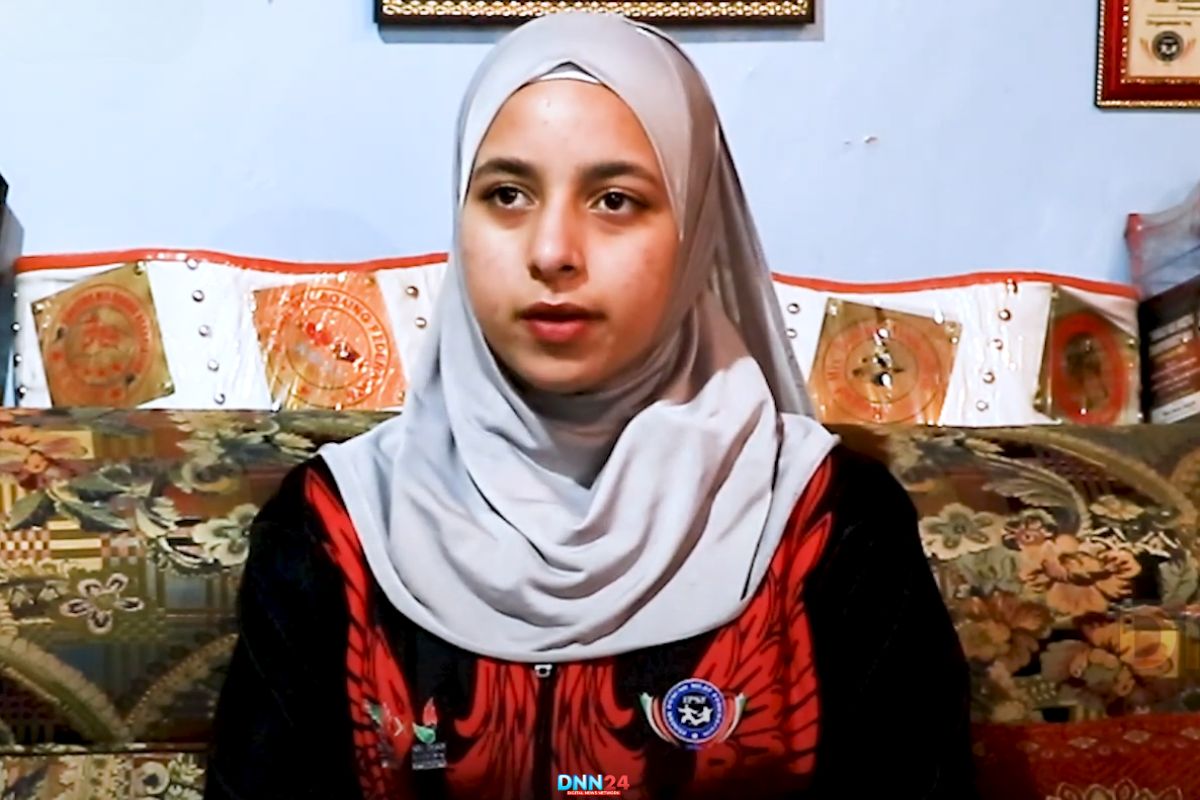
By 2021, Muqadus had become South Kashmir Champion, and her father had written a training manual called “Silat Sutras.” The year 2023 broughtSilver place for Muqadus at Artistic Nationals while Sajad launched a Women’s Silat Empowerment Programme to expand girl participation in the sport. Sajad completed his achievement by winning the World Champion title alongside Muqadus in 2025 while securing World Referee certification.
Muqadus created her individual moves by combining three components in the Langkah Tiga (Triple Step) spinning kick sequence with Sikap Pasang Hybrid that combines postures from Thang-Ta and Silat practises. She has expanded her athletic abilities through the years as demonstrated by her new moves. 40% of Sajad’s coaching philosophy comprises technique training while strategy takes up 30% and mental resilience forms an additional 30% of his approach. He believes, “Pencak isn’t about defeating others – it’s about mastering your own limitations.” The wise approach under which they operate has enabled them to tackle various challenges and reach their goals.
Education-Sport Equilibrium
Young athletes face an enormous difficulty when attempting to harmonise their academic responsibilities with their athletic commitments. Muqadus, who is currently in her ninth grade, leads a packed school schedule. Everyday begins with Muqadus conducting sparring drills from 5:30 AM until 7:30 AM before continuing with her CBSE curriculum at school during 8:30 AM to 2:30 PM hours. She devotes the afternoon hours between four and six to practise forms while reviewing her fight performance videos. She works on homework assignments followed by tactical journal writing during the time period from 7 PM to 9 PM.
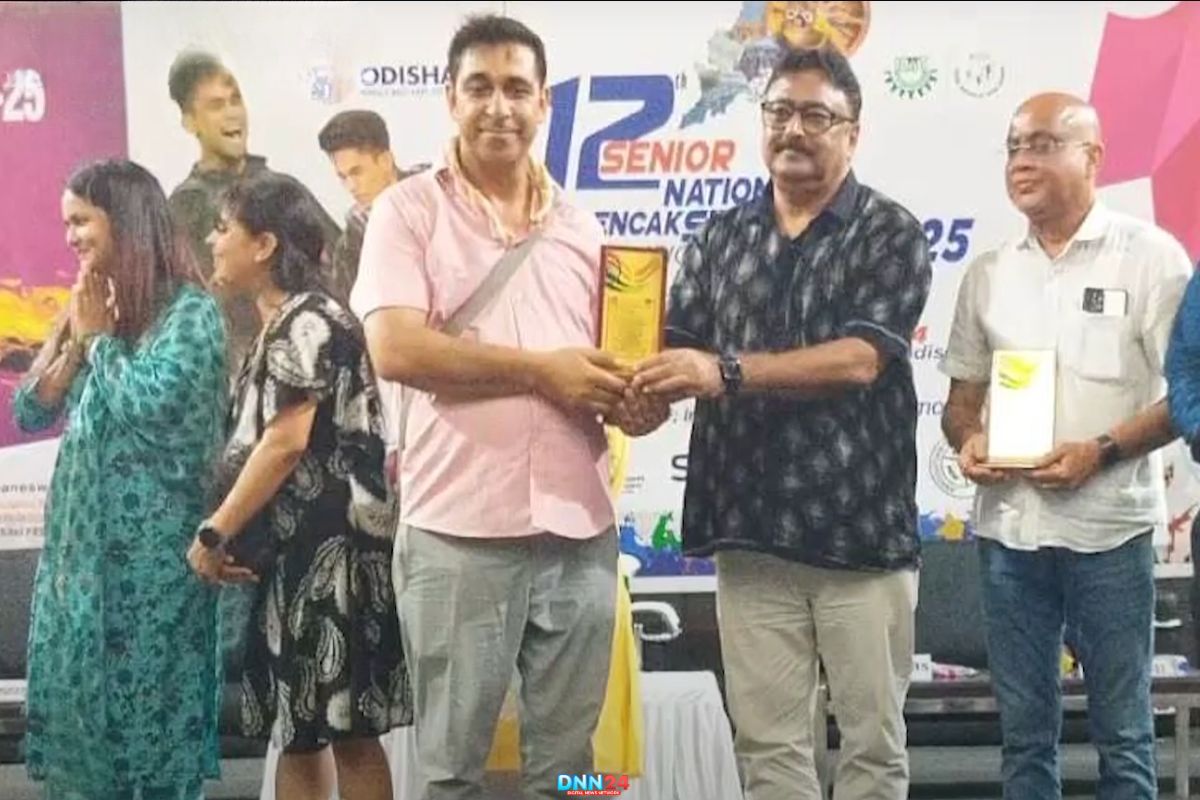
Her educational institution Kendriya Vidyalaya Anantnag provides full support. During contests the school adopts a flexible attendance rule while athletes can receive tutoring from their peers when competitions lead to travel. Through her support system she maintains academic success regardless of her physical absence from competitions.
The Sports Authority of India aids their professional development by delivering ₹18.7 lakh annually for sports equipment and tournament travel costs. Professional sports psychologists at NIS Patiala provide mental preparation services to the athletes. Through its programme the JK Sports Council creates specific dietary guidelines (3500 calories per day) and organises training sessions at the elevated location in Pahalgam. These organisations extended their vital backing as Kirti Gaur pursued towards becoming world champions.
Women in Other Martial Arts
Muqadus’s success has inspired many girls in Jammu and Kashmir to take up Pencak Silat. After their 2025 world championship win, there was a 63% increase in female Silat registrations across J&K, and 17 new women’s coaching centers were established. This was the first time an all-girls team formed for participation in the Asian Championship was possible. This is a typical example of metamorphosis that occurs when one person from the community rises to become successful.
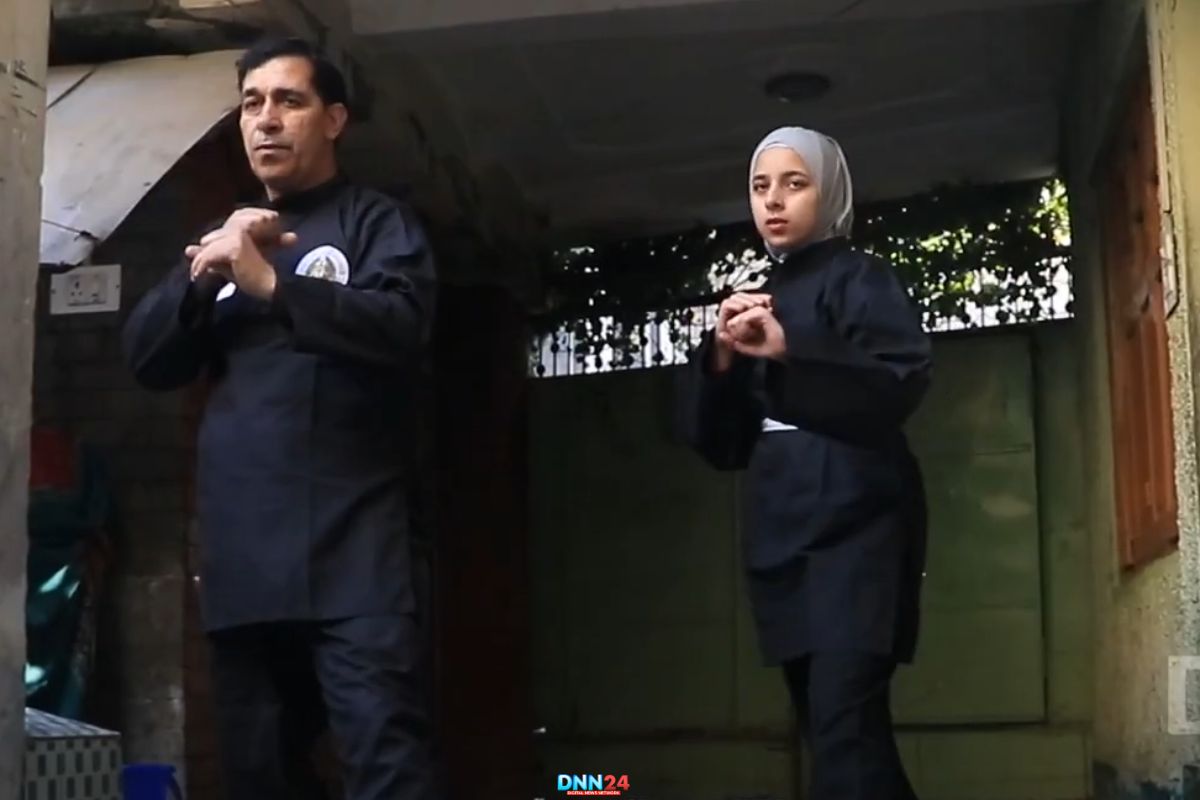
Muqadus has now become a hero to young girls in order to emulate matters concerning taking part in the sport, especially martial arts. This proves that girls also possess the capability to practise combat sports and compete for the country at international standards. This message is most relevant in cultures where girls are known to be prohibited from engaging in any form of sports activities.
Road to Olympics 2028: Strategic Blueprint
With their eyes now set on the Olympics in 2028, Sajad and Muqadus are preparing with advanced training methods. They are employing artificial intelligence to help them in training and analysing their movements and those of their opponents. They are also practising with Chinese Wushu fighters as well as Brazilian Capoeira masters as ways of enhancing the ways of fighting.
They are also working on developing better infrastructure for Pencak Silat in India. Aim and objectives of Anantnag Silat Hub consists of an Olympic-standard gelanggang or competition hall for a cost of ₹6 crore, a sports science laboratory with a cost of ₹4 crores and male and female athletes dormitories for 60 trainees each with a total cost of ₹14 crore of Anantnag Silat Hub. This hub will have provision for proper training facilities of the would be champions and will go a long way in popularising this game all over India.
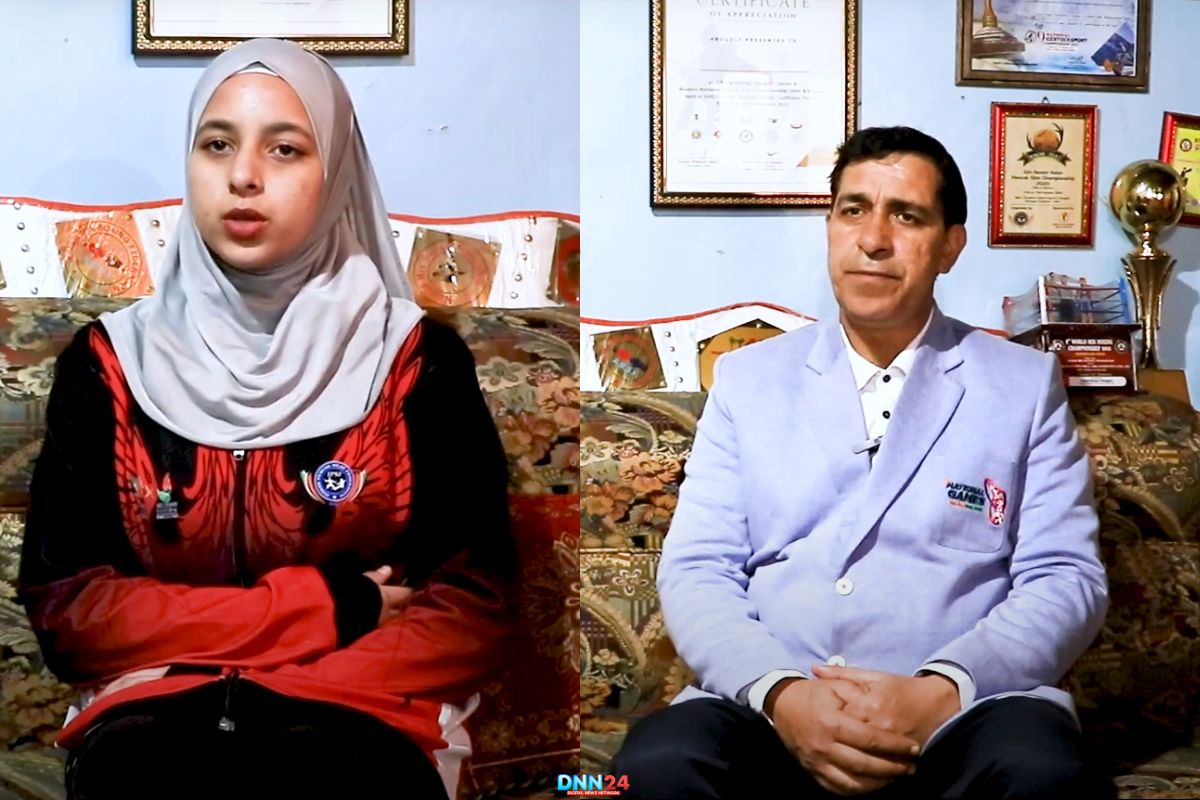
“Our next goal is to represent India in the Olympics and win gold medals there too,” says Muqadus. “We are training very hard and learning new techniques to prepare for the Olympic qualifiers.” Since they have set this as their goal and getting support from such organisations, there is likelihood of them realising this dream.
Redefining Possibilities
The story of Sajad (42) and Muqadus is a strong summary of the Olympics with regard to the victories in sports. It is a revolution that is revolutionising the thinking of the world in terms of martial arts and women in sports. They have been trained during the day on meadows of Kashmir and have competed during the night at podiums in Abu Dhabi.
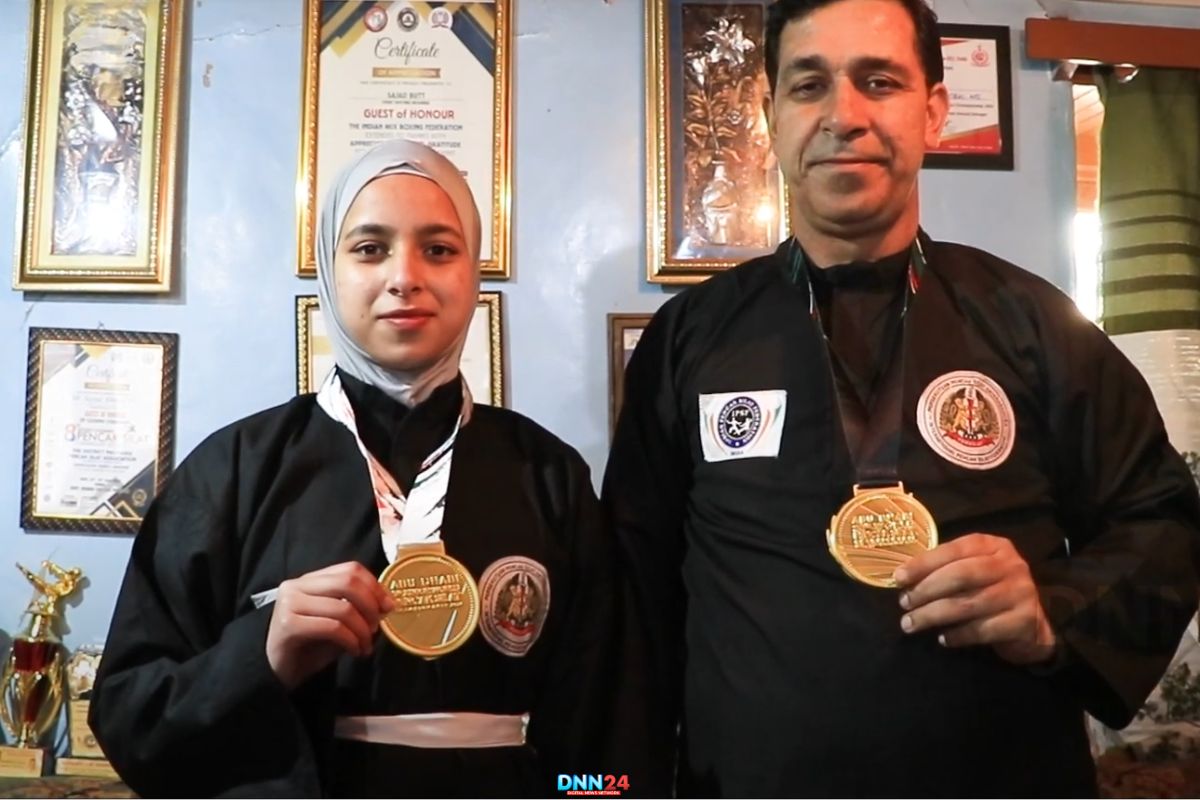
They have practiced at least four thousands, four hundred and eighty six hours, have played in three hundred and nineteen national and international games, and have recorded seventeen stereotype breakthroughs. The Lone duo has transformed Pencak Silat from an unknown martial art into a vehicle for youth empowerment and national pride. Their story encourages not only athletes, but each and every person in India to dream and strive for the top. It shows that where there is the will, there is a way to all our dreams, how however impossible, they may seem.
Also Read: Chandrika Srinivas: A Parai Player Breaking Barriers and Preserving Heritage
You can connect with DNN24 on Facebook, Twitter, and Instagram and subscribe to our YouTube channel.



